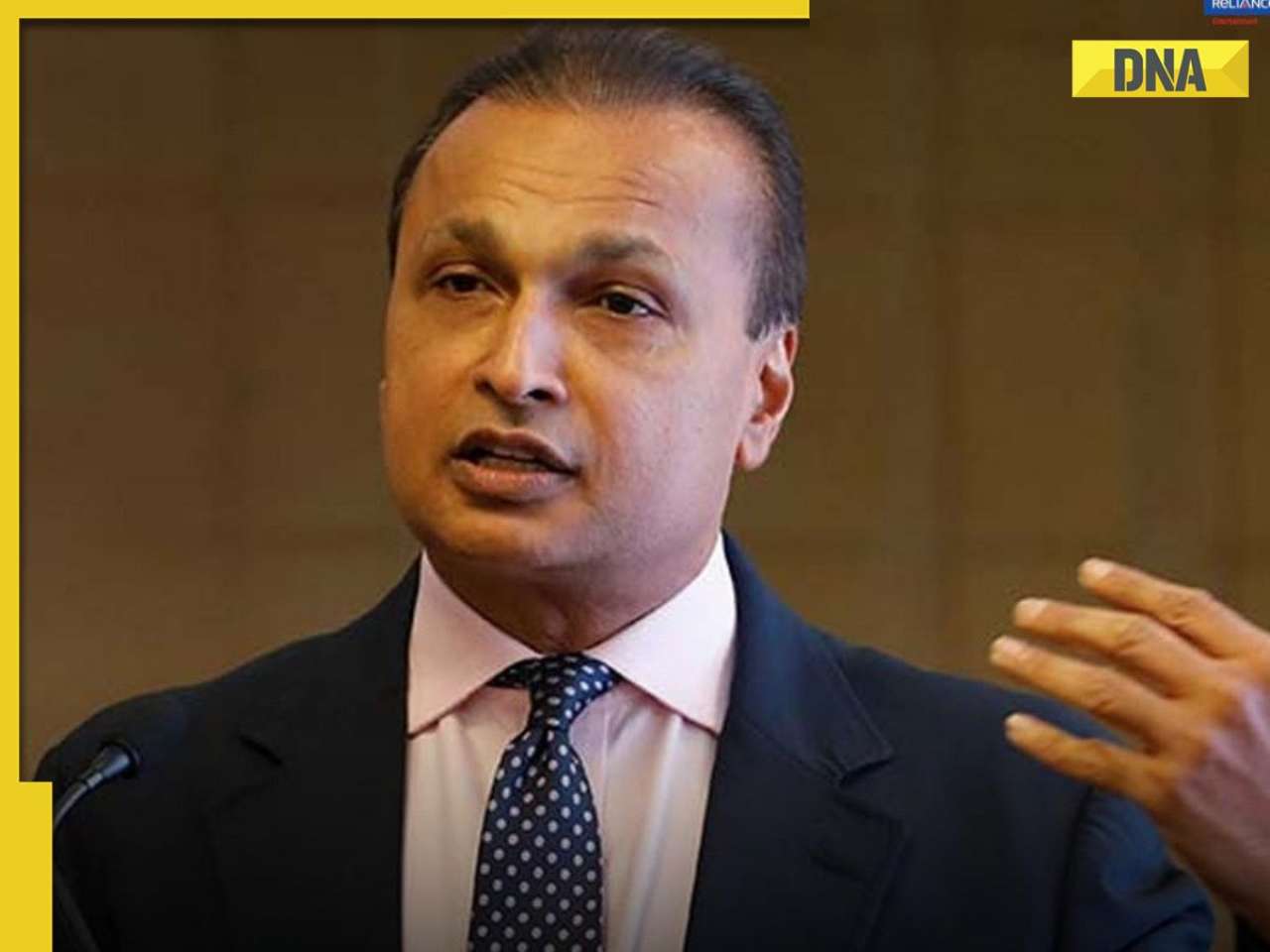The Indian start-up and angel funding industry received a major shock after several of them were served with an income tax (IT) notice last month from the Central Board of Direct Taxes (CBDT) in connection with fundraising during the assessment year 2015-16. It suddenly seemed that the ghost of angel tax had returned to hound them despite the fact that the government had relaxed the norms earlier in 2018.
Introduced in 2012 by the then finance minister Pranab Mukherjee, angel tax is aimed at the premium on valuation that is above the book value. The rationale behind angel tax was to keep a check on money laundering involving bogus entities. In simple terms, it was brought in to curb black money movement by domestic investors who were parking their funds into start-ups that were at that time an emerging asset class.
Basically, under section 56(2)(viib) of the Income-tax Act, 1961, if a closely-held company allots shares to residents at a price more than its fair market value (FMV), the excess received from its FMV is treated as income for that company and shall be taxed accordingly. FMV was based on valuation and that can be very subjective. This has led to a lot of litigation as tax officers had challenged valuations of the investments coming in.
Start-ups approved by the Department of Industrial Policy & Promotion (DIPP) for this purpose are exempt under this provision though. DIPP in its notification dated April 11, 2018, prescribed conditions and procedure to seek approval under this provision, which were felt stringent and consequently in case of assessments of many start-ups, additions were made to their income by the tax officers.
Anil Joshi, managing partner, Unicorn India Ventures (UIV) has invested in over a dozen start-ups including boxx.ai, Genrobotics, Pharmarack and SmartCoin among others, and feels it's a good idea to keep a check on money laundering. But as this asset class grew over the years, it has started to impact the early stage investments in a big way, especially the start-ups.
"The numbers tell the story as year-on-year there has been a substantial drop in angel investments in the country. What is interesting to note is that venture funds and foreign investors are exempt from this tax but domicile investors have to open themselves up for taxation or audit if they fund a start-up by buying a stake at a premium valuation," said Joshi.
Over the years, start-ups have become a backbone of the Indian economy. However, a tax of this nature was slowing down the ecosystem's growth. In fact, such entrepreneurial initiatives coming under a tax obligation itself made it an unfair bet, particularly in a scenario where start-ups were raising money from family and friends to shape up their dreams.
"They (family and friends) should not be treated like an angel. Many start-ups are trying to avoid investors at an early stage, not all start-ups can wait," said Pankit Desai, co-founder and chief executive officer, Sequretek.
Before the recent guidelines were announced by the DIPP on January 19, 2019, the previous version had many bottlenecks like obtaining a valuation certificate or submitting paperwork to ask for an exemption. Some of these have been addressed now and a time cap of 45 days to settle any dispute is a new addition. However, for an entrepreneur to become a DIPP-recognised entity remains a time-consuming process.
Experts said, for a first time entrepreneur, it may be a challenge to be aware of the tax rules. While a business-savvy founder may find it relatively easier to work around with the norms in place, it's a major hurdle for a pure tech or a product person launching his first venture.
"And the time, energy and money that s/he will divert into being compliant on this issue will obviously impact the innovation that s/he is building, which should be the core focus of an entrepreneur especially in the early days," said Desai.
To reduce the problems faced by start-ups, DIPP issued notifications over a week ago thereby easing some of the conditions and procedures. That's the general perception but industry experts feel otherwise.
While the attempt has been made to ease the issues faced by start-ups, the measures seem inadequate which will affect the founders as well as investors, said Amit Maheshwari, partner, Ashok Maheshwary & Associates LLP.
"One of the eligibility conditions for the exemption has become a stumbling block and a matter of huge concern for investors i.e. requirement of an investor having a returned income of at least Rs 50 lakh and a net worth more than Rs 2 crore. Many small investors and family-friends, who invest at an early stage will be left out due to this condition.
"The easing measures announced recently are only applicable to start-ups recognised by DIPP, which includes a limit of Rs 10 crore as aggregate share capital and premium which could be limiting factor discouraging corporates, family trust investments etc. as most are not accredited investors. Also, in the initial notification, no timeline was provided for DIPP to grant the approval and now the timeline of 45 days has been introduced which seem to be a longer period," said Maheshwari adding that start-ups who have already faced tax demands cannot apply for that particular year.
Additionally, CBDT has clarified that the relaxations shall not provide immunity in cases where assessments have already been completed. However, it has also assured that no coercive action would be taken in the follow-up of income tax notices and demand-orders issued to start-ups.
"These measures have limited impact plus, we believe that it would be good to have representation from the start-up ecosystem whilst framing these policies for it to have a meaningful impact, at present it seems a bit top down policy measure," said Desai.
Industry players feel while the Indian government is promoting the start-up culture it needs to look at how other developing or developed nations are treating this topic. Apparently, the practice of levying angel tax doesn't exist in any other country. In fact, many of the biggest start-up hubs extend tax breaks to angels and other investors investing in this asset class.
"Case in point being the UK and other European Union countries that give tax relief to attract more angels to invest in start-ups," said Joshi.
This ensures early-stage funding for start-ups to build their businesses and that is why we see innovation coming from these countries with a global appeal, said Desai. "Today Israel is the cybersecurity hub of the world, as there aren't other distractions and innovation can be done on a larger scale and business can grow and flourish," he said.
Industry experts said entrepreneurs give up everything — their jobs, personal life — to build a company from scratch, to innovate and contribute to venture building. Despite all this, if they have to pay 30% tax on the funding they have raised by parting with equity, it makes for an expensive proposition.
"But they still have to do it as traditional debt mechanisms or any other alternate form of funding is not available to them. In such a scenario, if they raise money from friends and family, who then have to pay tax, it defeats the whole purpose of getting his/her business off the ground. Thus, many entrepreneurs remain bootstrapped and wait for the right investor usually an early stage VC or a foreign investor to raise the first round.
"But it is important to note that not all start-ups can wait that long and angel funding is their survival lifeline to keep the business afloat, generate revenues, show business traction and customer validation to attract institutional funding. With the angel tax ghost chasing the investors, many of them are now shying away from investing in start-ups as for a small amount of investment, nobody wants to go through the pain of providing too much information on their net worth and finances and then pay tax," said Joshi.
The good thing though is that government is hearing out the industry's concerns and initiating swift action on the same. To further ease out the overall environment, experts said, it needs to exempt the family and friends — parents, siblings, relatives —from angel tax preview. The basis for valuation could be done away with as well when applying to CBDT via DIPP.
"The limit of total investment not exceeding Rs 10 crore to be eligible for exemption should also be enhanced. The entrepreneurs should be able to seek pre-approval for exemption before raising the round through a single window clearance mechanism so that they know in advance where they stand with the tax authorities," said Joshi adding that ideally there should be nothing like angel tax at all.
AREAS OF CONCERN
- No relaxation for small investors like family, friends, etc. who may provide critical funding for some start-ups at the initial stages.
- Special Purpose vehicles of investors could also get hit
- No restriction by government on generating fresh IT notices which could be area of concern. Hence, despite the changes applications will still be scrutinised by tax authorities. Sources of funding would be challenge for investors considering the limit imposed and small investors would be still suffering under the huge tax net.
EARLY-STAGE INVESTMENT DEALS
- 624 – investment deals in 2016
- 11.69% – drop in deals to 551 in 2017
- 47% – drop in deals to 551 in 2017
![submenu-img]() This singer left Air Force, sang at churches, became superstar; later his father killed him after...
This singer left Air Force, sang at churches, became superstar; later his father killed him after...![submenu-img]() Indian-origin man says Apple CEO Tim Cook pushed him...
Indian-origin man says Apple CEO Tim Cook pushed him...![submenu-img]() Anil Ambani’s Rs 96500000000 Reliance deal still waiting for green signal? IRDAI nod awaited as deadline nears
Anil Ambani’s Rs 96500000000 Reliance deal still waiting for green signal? IRDAI nod awaited as deadline nears![submenu-img]() Most popular Indian song ever on Spotify has 50 crore streams; it's not Besharam Rang, Pehle Bhi Main, Oo Antava, Naina
Most popular Indian song ever on Spotify has 50 crore streams; it's not Besharam Rang, Pehle Bhi Main, Oo Antava, Naina![submenu-img]() Did Diljit Dosanjh cut his hair for Amar Singh Chamkila? Imtiaz Ali reveals ‘he managed to…’
Did Diljit Dosanjh cut his hair for Amar Singh Chamkila? Imtiaz Ali reveals ‘he managed to…’ ![submenu-img]() DNA Verified: Is CAA an anti-Muslim law? Centre terms news report as 'misleading'
DNA Verified: Is CAA an anti-Muslim law? Centre terms news report as 'misleading'![submenu-img]() DNA Verified: Lok Sabha Elections 2024 to be held on April 19? Know truth behind viral message
DNA Verified: Lok Sabha Elections 2024 to be held on April 19? Know truth behind viral message![submenu-img]() DNA Verified: Modi govt giving students free laptops under 'One Student One Laptop' scheme? Know truth here
DNA Verified: Modi govt giving students free laptops under 'One Student One Laptop' scheme? Know truth here![submenu-img]() DNA Verified: Shah Rukh Khan denies reports of his role in release of India's naval officers from Qatar
DNA Verified: Shah Rukh Khan denies reports of his role in release of India's naval officers from Qatar![submenu-img]() DNA Verified: Is govt providing Rs 1.6 lakh benefit to girls under PM Ladli Laxmi Yojana? Know truth
DNA Verified: Is govt providing Rs 1.6 lakh benefit to girls under PM Ladli Laxmi Yojana? Know truth![submenu-img]() Alia Bhatt wears elegant saree made by 163 people over 1965 hours to Met Gala 2024, fans call her ‘princess Jasmine’
Alia Bhatt wears elegant saree made by 163 people over 1965 hours to Met Gala 2024, fans call her ‘princess Jasmine’![submenu-img]() Jr NTR-Lakshmi Pranathi's 13th wedding anniversary: Here's how strangers became soulmates
Jr NTR-Lakshmi Pranathi's 13th wedding anniversary: Here's how strangers became soulmates![submenu-img]() Streaming This Week: Heeramandi, Shaitaan, Manjummel Boys, latest OTT releases to binge-watch
Streaming This Week: Heeramandi, Shaitaan, Manjummel Boys, latest OTT releases to binge-watch![submenu-img]() Remember Ayesha Kapur? Michelle from Black, here's how actress, nutrition coach, entrepreneur looks after 19 years
Remember Ayesha Kapur? Michelle from Black, here's how actress, nutrition coach, entrepreneur looks after 19 years![submenu-img]() Remember Heyy Babyy's cute 'Angel' Juanna Sanghvi? 20 year-old looks unrecognisable now, fans say 'her comeback will...'
Remember Heyy Babyy's cute 'Angel' Juanna Sanghvi? 20 year-old looks unrecognisable now, fans say 'her comeback will...'![submenu-img]() DNA Explainer: Why Harvey Weinstein's rape conviction was overturned, will beleaguered Hollywood mogul get out of jail?
DNA Explainer: Why Harvey Weinstein's rape conviction was overturned, will beleaguered Hollywood mogul get out of jail?![submenu-img]() What is inheritance tax?
What is inheritance tax?![submenu-img]() DNA Explainer: What is cloud seeding which is blamed for wreaking havoc in Dubai?
DNA Explainer: What is cloud seeding which is blamed for wreaking havoc in Dubai?![submenu-img]() DNA Explainer: What is Israel's Arrow-3 defence system used to intercept Iran's missile attack?
DNA Explainer: What is Israel's Arrow-3 defence system used to intercept Iran's missile attack?![submenu-img]() DNA Explainer: How Iranian projectiles failed to breach iron-clad Israeli air defence
DNA Explainer: How Iranian projectiles failed to breach iron-clad Israeli air defence![submenu-img]() This singer left Air Force, sang at churches, became superstar; later his father killed him after...
This singer left Air Force, sang at churches, became superstar; later his father killed him after...![submenu-img]() Most popular Indian song ever on Spotify has 50 crore streams; it's not Besharam Rang, Pehle Bhi Main, Oo Antava, Naina
Most popular Indian song ever on Spotify has 50 crore streams; it's not Besharam Rang, Pehle Bhi Main, Oo Antava, Naina![submenu-img]() Did Diljit Dosanjh cut his hair for Amar Singh Chamkila? Imtiaz Ali reveals ‘he managed to…’
Did Diljit Dosanjh cut his hair for Amar Singh Chamkila? Imtiaz Ali reveals ‘he managed to…’ ![submenu-img]() Watch: Arti Singh gets grand welcome at husband Dipak's house with fairy lights and fireworks, video goes viral
Watch: Arti Singh gets grand welcome at husband Dipak's house with fairy lights and fireworks, video goes viral![submenu-img]() Meet actress, who belongs to family of superstars, quit films after 19 flops, no single hit in 9 years; is still worth…
Meet actress, who belongs to family of superstars, quit films after 19 flops, no single hit in 9 years; is still worth…![submenu-img]() IPL 2024: Suryakumar Yadav's century power MI to 7-wicket win over SRH
IPL 2024: Suryakumar Yadav's century power MI to 7-wicket win over SRH![submenu-img]() DC vs RR, IPL 2024: Predicted playing XI, live streaming details, weather and pitch report
DC vs RR, IPL 2024: Predicted playing XI, live streaming details, weather and pitch report![submenu-img]() Watch: Team India’s new jersey for T20 World Cup 2024 unveiled
Watch: Team India’s new jersey for T20 World Cup 2024 unveiled![submenu-img]() DC vs RR IPL 2024 Dream11 prediction: Fantasy cricket tips for Delhi Capitals vs Rajasthan Royals
DC vs RR IPL 2024 Dream11 prediction: Fantasy cricket tips for Delhi Capitals vs Rajasthan Royals![submenu-img]() IPL 2024: Kolkata Knight Riders take top spot after 98 runs win over Lucknow Super Giants
IPL 2024: Kolkata Knight Riders take top spot after 98 runs win over Lucknow Super Giants![submenu-img]() Indian-origin man says Apple CEO Tim Cook pushed him...
Indian-origin man says Apple CEO Tim Cook pushed him...![submenu-img]() Meet man whose salary was only Rs 83 but his net worth grew by Rs 7010577000000 in 2023, he is Mukesh Ambani's...
Meet man whose salary was only Rs 83 but his net worth grew by Rs 7010577000000 in 2023, he is Mukesh Ambani's...![submenu-img]() Job applicant offers to pay Rs 40000 to Bengaluru startup founder, here's what happened next
Job applicant offers to pay Rs 40000 to Bengaluru startup founder, here's what happened next![submenu-img]() Viral video: Family fearlessly conducts puja with live black cobra, internet reacts
Viral video: Family fearlessly conducts puja with live black cobra, internet reacts![submenu-img]() Woman demands Rs 50 lakh after receiving chicken instead of paneer
Woman demands Rs 50 lakh after receiving chicken instead of paneer





































)









)
)
)
)
)
)